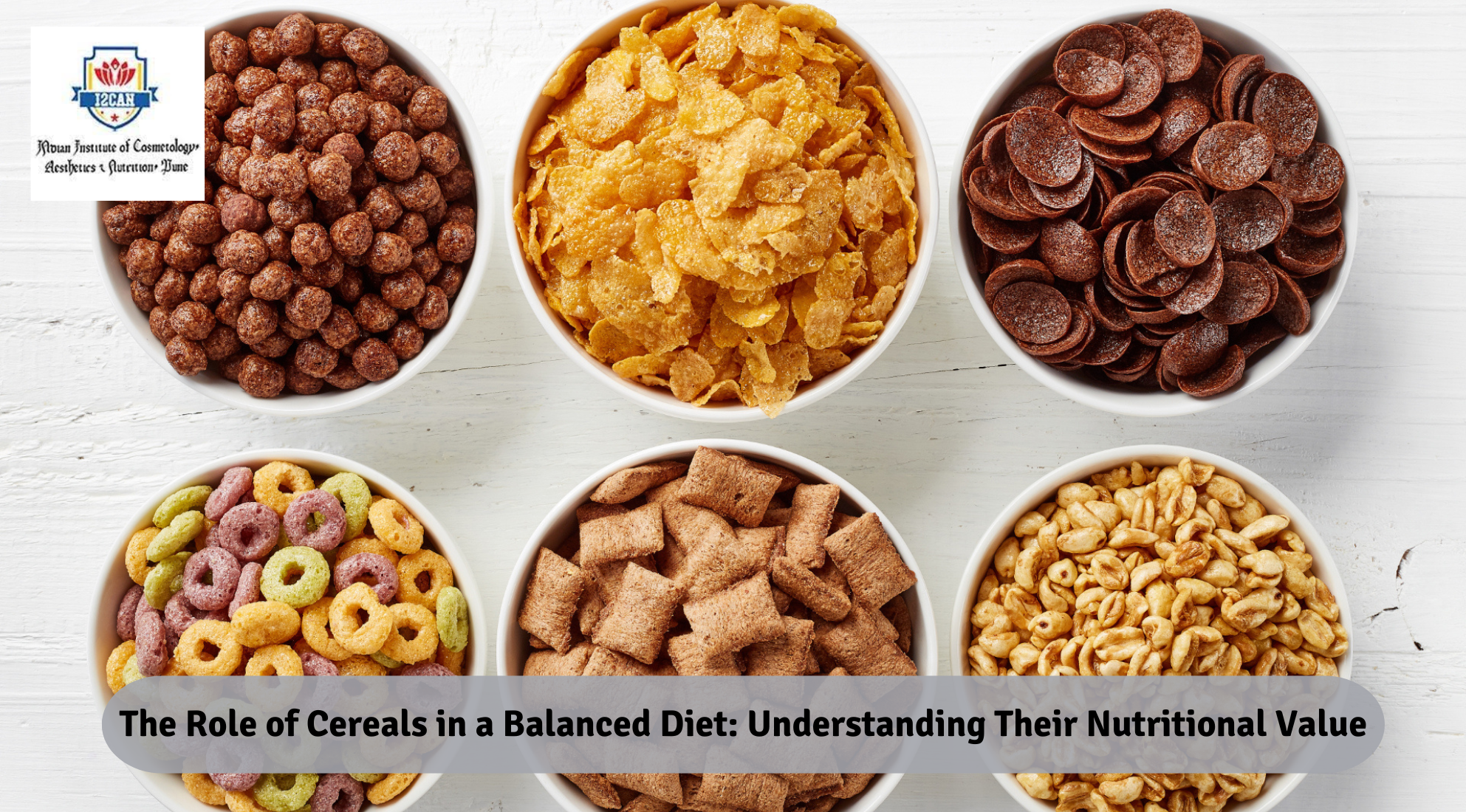Cereals have been a dietary staple for centuries, serving as a primary source of nutrition for cultures around the world. From wheat and rice to oats and barley, cereals come in various forms and offer a wide range of nutritional benefits. In this comprehensive guide, we’ll delve into the role of cereals in a balanced diet, exploring their nutritional value, health benefits, and tips for incorporating them into your meals.
Understanding Cereals:
Cereals, also known as grains, are the edible seeds of grass-like plants and form the basis of many diets worldwide. Common cereals include wheat, rice, oats, barley, maize (corn), millet, and sorghum. These grains are rich in carbohydrates, fiber, vitamins, minerals, and antioxidants, making them essential components of a balanced diet.
Nutritional Value of Cereals:
- Carbohydrates:
- Cereals are rich in carbohydrates, providing the body with a vital source of energy for daily activities and bodily functions.
- Fiber:
- Whole grains contain dietary fiber, which aids digestion, promotes satiety, and helps maintain a healthy weight. Fiber also supports heart health by reducing cholesterol levels and regulating blood sugar levels.
- Protein:
- Cereals contain varying amounts of protein, which is essential for muscle growth, repair, and overall health. While plant-based proteins may be incomplete, combining cereals with legumes or dairy products can create a complete protein source.
- Vitamins and Minerals:
- Cereals are rich in vitamins and minerals, including B vitamins (thiamine, riboflavin, niacin, and folate), iron, magnesium, zinc, and phosphorus. These nutrients play crucial roles in metabolism, immune function, bone health, and energy production.
Health Benefits of Cereals:
- Heart Health:
- Whole grains, such as oats, barley, and brown rice, are associated with a reduced risk of heart disease due to their high fiber content and ability to lower cholesterol levels.
- Weight Management:
- Consuming cereals rich in fiber promotes feelings of fullness and helps control appetite, making it easier to manage weight and prevent overeating.
- Digestive Health:
- The fiber content in cereals supports digestive health by promoting regular bowel movements, preventing constipation, and maintaining a healthy gut microbiome.
- Blood Sugar Control:
- Whole grains have a lower glycemic index compared to refined grains, resulting in slower digestion and more stable blood sugar levels. This is beneficial for individuals with diabetes or insulin resistance.
Incorporating Cereals into Your Diet:
- Start the Day with Breakfast Cereals:
- Choose whole grain breakfast cereals fortified with vitamins and minerals for a nutritious start to your day. Pair with low-fat milk or yogurt and fresh fruit for added flavor and nutrition.
- Swap Refined Grains for Whole Grains:
- Replace refined grains like white bread, pasta, and rice with whole grain alternatives such as whole wheat bread, brown rice, quinoa, and barley to increase fiber and nutrient intake.
- Experiment with Ancient Grains:
- Explore ancient grains like quinoa, farro, and amaranth for variety and nutritional diversity. These grains offer unique flavors and textures and can be used in salads, soups, and side dishes.
- Snack on Whole Grain Crackers and Bars:
- Opt for whole grain crackers, rice cakes, and granola bars as convenient snacks to satisfy hunger between meals. Look for options with minimal added sugars and sodium.
Conclusion:
Cereals are an indispensable part of a balanced diet, providing essential nutrients, energy, and health benefits. Whether you prefer oats for breakfast, brown rice with lunch, or quinoa in a salad, incorporating a variety of cereals into your meals can enhance your overall health and well-being. By understanding the nutritional value and health benefits of cereals and exploring creative ways to incorporate them into your diet, you can enjoy delicious and nutritious meals that support your long-term health goals.

